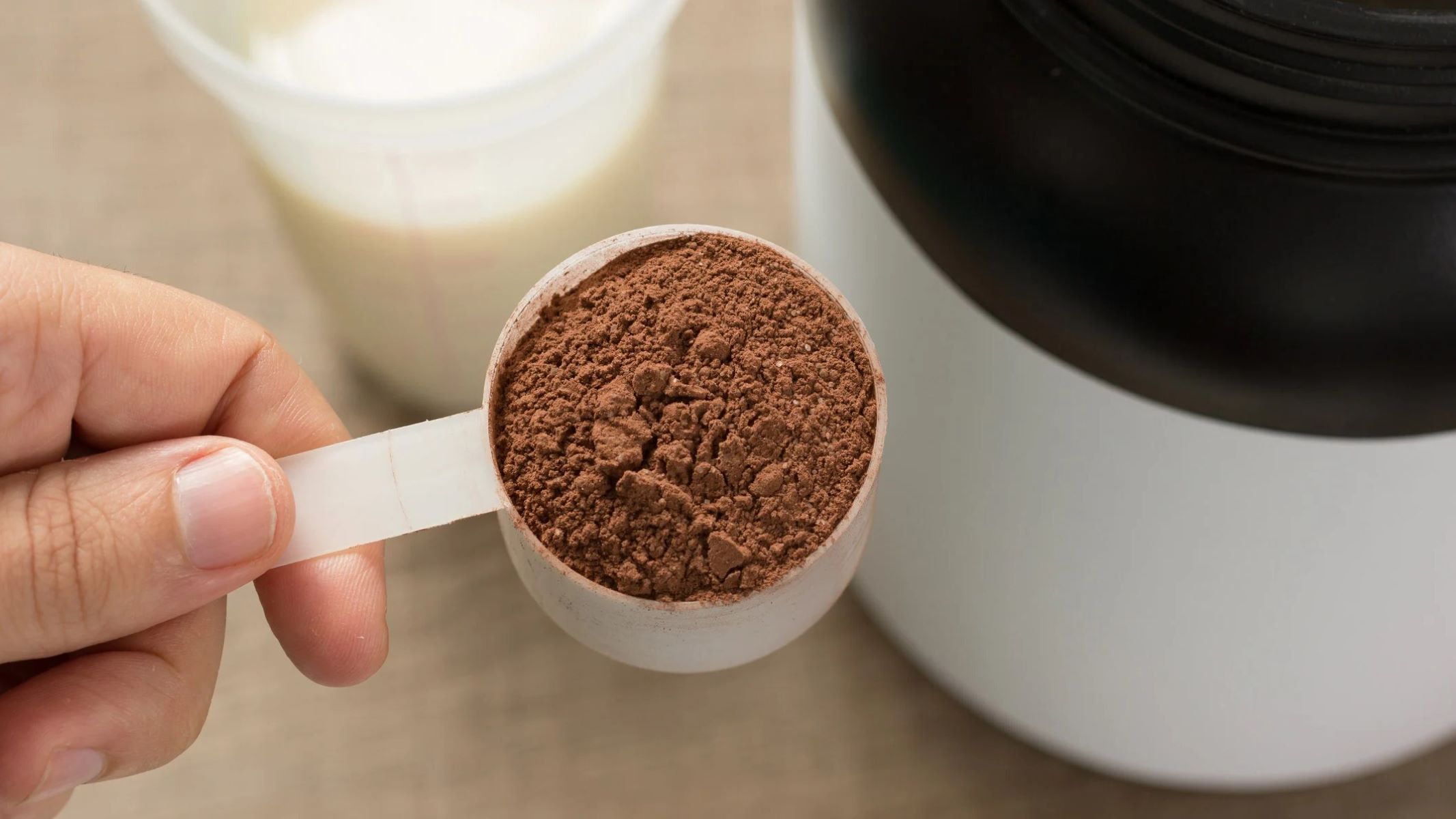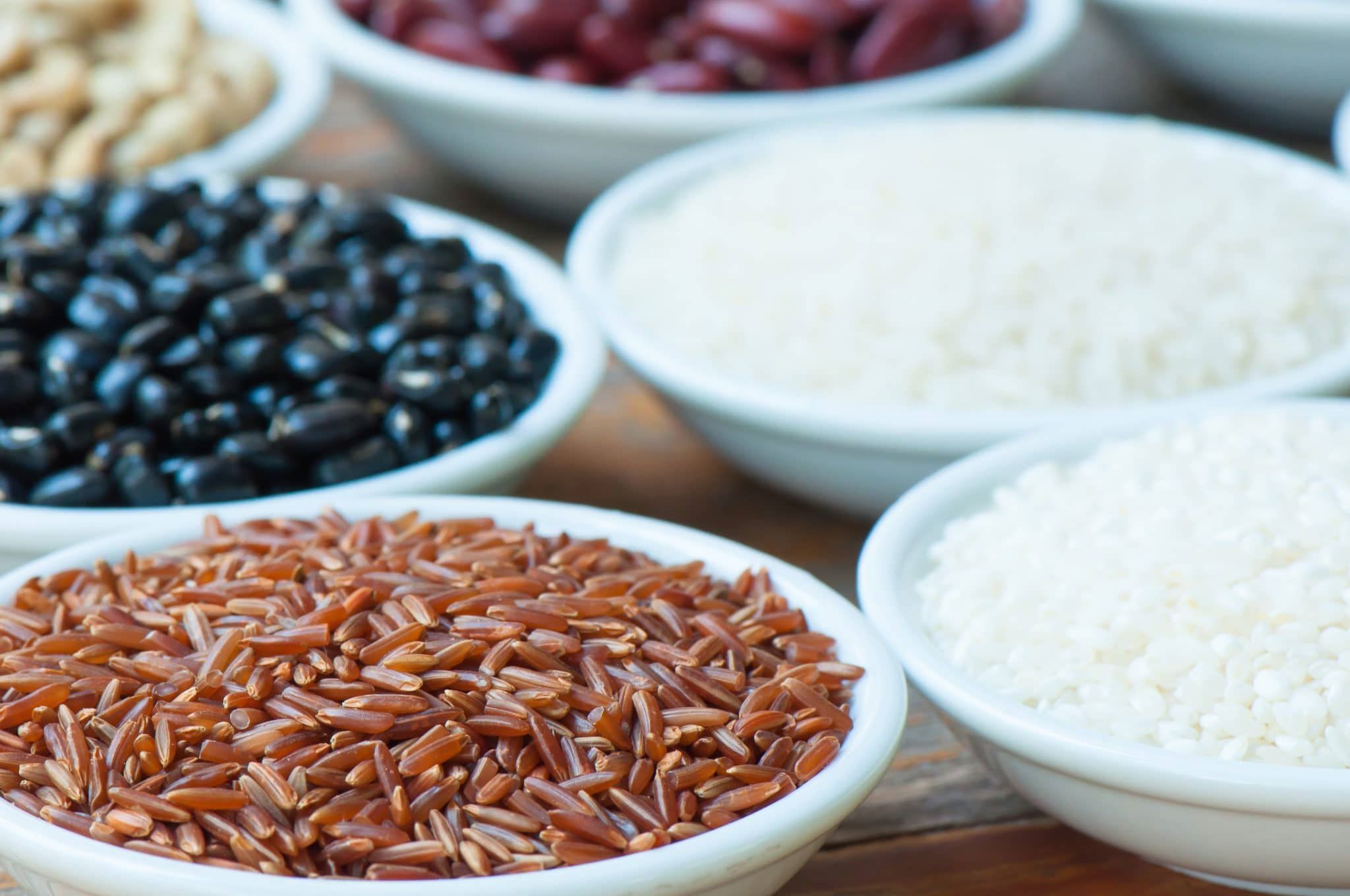Home>Health & Nutrition>Choosing The Right Protein Powder For Runners: Whey, Casein, And Beyond


Health & Nutrition
Choosing The Right Protein Powder For Runners: Whey, Casein, And Beyond
Published: February 22, 2024
Discover the best protein powders for runners, including whey and casein options, to optimize your health and nutrition for peak performance. Choose the right protein powder for your running needs.
(Many of the links in this article redirect to a specific reviewed product. Your purchase of these products through affiliate links helps to generate commission for Therunningadvisor.com, at no extra cost. Learn more)
Table of Contents
Understanding the Different Types of Protein Powders
When it comes to fueling your body for optimal performance as a runner, protein powders can be a valuable addition to your nutrition regimen. However, with the myriad of options available, it's essential to understand the different types of protein powders to make an informed choice.
-
Whey Protein:
- Derived from milk, whey protein is a popular choice among runners due to its rapid absorption rate. This fast-acting protein is rich in essential amino acids, making it an ideal option for post-run recovery. Whey protein is available in various forms, including concentrate, isolate, and hydrolysate, each offering different protein concentrations and digestion rates.
-
Casein Protein:
- Unlike whey, casein protein is digested slowly, providing a sustained release of amino acids into the bloodstream. This makes it beneficial for runners looking to support muscle recovery over an extended period, such as during overnight fasting or between meals. Casein protein is often recommended for its ability to promote muscle protein synthesis and reduce muscle breakdown.
-
Pea Protein:
- A plant-based alternative, pea protein is an excellent option for runners with lactose intolerance or those following a vegan or vegetarian diet. This protein source is rich in branched-chain amino acids (BCAAs), which play a crucial role in muscle repair and growth. Additionally, pea protein is easily digestible and may offer similar benefits to whey protein in supporting muscle recovery.
-
Hemp Protein:
- Hemp protein is derived from hemp seeds and is renowned for its high fiber content and complete amino acid profile. For runners seeking a sustainable and environmentally friendly protein source, hemp protein is an attractive option. It also contains omega-3 and omega-6 fatty acids, which contribute to overall heart health and inflammation reduction.
-
Soy Protein:
- Another plant-based protein, soy protein, is a complete protein source, providing all essential amino acids. It is particularly beneficial for runners due to its potential to reduce muscle inflammation and support bone health. Soy protein is also known for its ability to lower cholesterol levels and improve cardiovascular health.
Understanding the unique characteristics of these protein powders empowers runners to select the most suitable option based on their individual needs and dietary preferences. Whether prioritizing rapid post-exercise recovery, sustained muscle support, or plant-based nutrition, the diverse range of protein powders available ensures that every runner can find the perfect fit for their training and performance goals.
Read more: The Optimal Protein Intake For Runners
The Benefits of Whey Protein for Runners
Whey protein stands out as a highly favored choice among runners, offering a plethora of benefits that cater to their specific nutritional needs. As a rapidly absorbed protein derived from milk, whey protein plays a pivotal role in supporting the recovery and growth of muscles, making it an indispensable supplement for runners aiming to optimize their performance.
One of the primary advantages of whey protein for runners lies in its quick digestion and absorption properties. Following a strenuous run, the body's demand for protein to kickstart the muscle repair process is heightened. Whey protein, with its fast-acting nature, swiftly delivers essential amino acids to the muscles, facilitating efficient recovery. This rapid replenishment of amino acids aids in minimizing muscle soreness and fatigue, enabling runners to bounce back quicker and prepare for their next training session or race.
Furthermore, whey protein is renowned for its high concentration of leucine, an essential amino acid crucial for muscle protein synthesis. By stimulating muscle protein synthesis, whey protein supports the repair and rebuilding of muscle tissue, ultimately contributing to enhanced muscle strength and endurance. For runners, this translates to improved performance and reduced risk of overuse injuries, as the muscles are better equipped to withstand the demands of long-distance running and intense training sessions.
In addition to its role in muscle recovery, whey protein also offers immune-boosting properties, which are particularly beneficial for runners. Engaging in rigorous physical activity can temporarily suppress the immune system, making runners more susceptible to infections and illnesses. Whey protein contains immunoglobulins and lactoferrin, compounds that bolster the immune system, helping runners maintain their overall health and well-being, especially during periods of intense training when the body is under heightened stress.
Moreover, whey protein serves as a convenient and versatile protein source for runners. Whether consumed in the form of a shake, added to smoothies, or incorporated into post-run meals, whey protein offers a convenient way to meet the increased protein requirements of runners without the need for extensive meal preparation. This convenience ensures that runners can easily integrate adequate protein intake into their daily nutrition, supporting their training goals and recovery needs.
In essence, the benefits of whey protein for runners are multifaceted, encompassing rapid muscle recovery, enhanced muscle strength, immune system support, and dietary convenience. By incorporating whey protein into their nutrition plan, runners can harness the power of this high-quality protein to optimize their performance, promote overall well-being, and elevate their running experience.
The Advantages of Casein Protein for Endurance Athletes
Casein protein, renowned for its slow-digesting properties, offers a myriad of advantages specifically tailored to meet the unique nutritional requirements of endurance athletes. Unlike fast-acting proteins, such as whey, casein protein provides a sustained release of amino acids, making it an invaluable asset for endurance athletes seeking to optimize their performance and recovery.
One of the primary benefits of casein protein for endurance athletes lies in its ability to support prolonged muscle recovery and repair. Endurance activities, characterized by extended periods of physical exertion, place significant stress on the muscles and deplete glycogen stores. In such scenarios, the slow and steady release of amino acids from casein protein serves as a continuous source of fuel for the muscles, aiding in the repair of microtears and the restoration of glycogen levels. This sustained support is particularly advantageous for endurance athletes engaged in activities such as long-distance running, cycling, and triathlons, where the demand for prolonged muscle endurance and recovery is paramount.
Moreover, casein protein plays a pivotal role in preventing muscle breakdown during periods of extended physical activity. Endurance athletes often face the challenge of muscle catabolism, especially during prolonged training sessions or competitions. The slow digestion of casein protein ensures a steady supply of amino acids to the muscles, effectively reducing the risk of muscle breakdown and promoting a positive muscle protein balance. By preserving muscle mass and function, casein protein empowers endurance athletes to maintain their performance levels throughout prolonged activities and expedite recovery post-exercise.
Additionally, the sustained satiety provided by casein protein can be advantageous for endurance athletes managing their nutrition during prolonged training or competitions. The slow digestion of casein protein results in a prolonged feeling of fullness, which can aid in regulating appetite and energy levels during endurance activities. This can be particularly beneficial for athletes participating in ultra-endurance events or multi-stage competitions, where maintaining consistent energy levels and managing hunger are critical factors for performance and overall well-being.
Furthermore, the unique properties of casein protein make it an ideal option for supporting overnight muscle recovery in endurance athletes. Consuming a casein protein supplement before bedtime can provide a sustained release of amino acids throughout the night, facilitating muscle repair and growth during the crucial overnight fasting period. This strategic utilization of casein protein can contribute to enhanced muscle recovery and adaptation, ultimately optimizing the training outcomes for endurance athletes.
In essence, the advantages of casein protein for endurance athletes encompass sustained muscle recovery, prevention of muscle breakdown, appetite regulation, and support for overnight muscle repair. By incorporating casein protein into their nutrition regimen, endurance athletes can harness the long-lasting benefits of this slow-digesting protein to elevate their performance, enhance recovery, and excel in their endurance pursuits.
Exploring Alternative Protein Powders for Runners
In addition to whey and casein protein, runners can benefit from exploring alternative protein powders that offer unique nutritional advantages to support their training and performance. These alternative options cater to diverse dietary preferences and provide valuable sources of essential amino acids, making them worthy considerations for runners seeking to diversify their protein intake.
One notable alternative is pea protein, a plant-based option that is highly digestible and rich in BCAAs, particularly beneficial for runners with lactose intolerance or those adhering to a vegan or vegetarian diet. Its ability to support muscle repair and growth makes it a compelling choice for runners looking to enhance their protein intake without relying on animal-derived sources.
Hemp protein presents another appealing alternative, derived from hemp seeds and renowned for its high fiber content and complete amino acid profile. For environmentally conscious runners, hemp protein offers a sustainable protein source, along with the added benefits of omega-3 and omega-6 fatty acids, contributing to heart health and inflammation reduction.
Soy protein, a complete plant-based protein source, is particularly advantageous for runners due to its potential to reduce muscle inflammation and support bone health. Its cholesterol-lowering properties and cardiovascular benefits further enhance its appeal as an alternative protein option for runners prioritizing overall health and well-being.
Additionally, rice protein, derived from brown rice, serves as an allergen-free alternative suitable for runners with dietary sensitivities. Its hypoallergenic nature, combined with its amino acid profile, makes it a viable option for supporting muscle recovery and meeting the increased protein requirements of runners.
Furthermore, blends of plant-based proteins, such as a combination of pea, hemp, and rice proteins, offer a comprehensive amino acid profile and diverse nutritional benefits, making them an attractive all-in-one solution for runners seeking a well-rounded protein source.
By exploring these alternative protein powders, runners can tailor their protein intake to align with their dietary preferences, ethical considerations, and specific nutritional needs. The availability of diverse protein options ensures that every runner can find a suitable and effective protein powder to complement their training, promote recovery, and optimize their overall performance.
Factors to Consider When Choosing the Right Protein Powder
When selecting the most suitable protein powder to complement their running regimen, athletes should carefully evaluate several key factors to ensure that their choice aligns with their individual needs and goals. These considerations play a crucial role in determining the effectiveness and compatibility of the protein powder with the runner's training, recovery, and overall nutritional requirements.
-
Nutritional Profile: The first factor to assess is the nutritional composition of the protein powder. Runners should prioritize products with a high protein content and a complete amino acid profile, ensuring that they receive the essential building blocks necessary for muscle repair, recovery, and growth.
-
Digestibility and Absorption: The speed at which the protein is digested and absorbed by the body is a critical consideration. For post-exercise recovery, runners may benefit from rapidly absorbed proteins like whey, while those seeking sustained support may opt for slower-digesting options such as casein or plant-based proteins.
-
Dietary Restrictions and Preferences: Athletes with specific dietary restrictions, such as lactose intolerance or a vegan/vegetarian lifestyle, should choose protein powders that align with their dietary preferences. This may involve opting for plant-based proteins like pea, hemp, or soy protein to meet their protein needs effectively.
-
Allergen Considerations: Individuals with known food allergies must carefully review the ingredients of protein powders to avoid potential allergens. For those with allergies to dairy, soy, or gluten, selecting allergen-free protein options, such as pea or rice protein, becomes imperative.
-
Purpose and Timing of Consumption: The intended use of the protein powder, whether for post-workout recovery, meal supplementation, or overnight muscle support, influences the choice of protein type. Whey protein is often favored for immediate post-exercise consumption, while casein or plant-based proteins may be suitable for sustained muscle support.
-
Quality and Purity: Assessing the quality and purity of the protein powder is essential to ensure that it is free from contaminants and meets industry standards. Opting for products that undergo rigorous testing and certification can provide runners with confidence in the safety and efficacy of the protein supplement.
-
Flavor and Mixability: While not directly related to nutritional benefits, the taste and mixability of the protein powder can significantly impact its consumption. Runners may prefer flavors that align with their palate and smooth mixing characteristics for convenient preparation.
By carefully considering these factors, runners can make informed decisions when choosing the right protein powder to support their training, recovery, and overall performance. Each factor plays a vital role in ensuring that the selected protein powder effectively meets the specific needs and preferences of the individual athlete, ultimately contributing to their success and well-being.
















